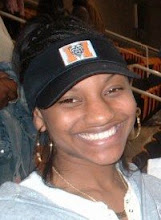The writing style of Virginia Woolf deals with the concept of time, memory, and people’s inner consciousness. She saw that men were a dominant force who reins enslavement over women. In her essays, a little drama is involved to captivate the audience.
Professions for women essay tell the story of young girl starting a career in writing. She is thrilled of the possibilities of doing reviews of authors’ work and looks forward to the pay she will receive. Her excitement grows short when her constant companion, the phantom, arises. She calls her The Angel in the House. The phantom is all she is not and goes against all Virginia beliefs. “She was intensely sympathetic. She was immensely charming. She was utterly unselfish. She excelled in the difficult arts of family life. She sacrificed herself daily.—in short she was so constituted that she never had a mind or wish of her own, but preferred to sympathize always with the minds and wishes of others.” (e-text)
Virginia attempts to write her review of a novel by a man, but The Lady interrupts and torments her. The Lady is concern about the way Virginia perceives things. She wants her to remember her statue in this world. “My dear, you are a young woman. You are writing about a book that has been written by a man. Be sympathetic; be tender; flatter; deceive; use all the arts and wiles of our sex. Never let anybody guess that you have a mind of your own.” At this point, the phantom leans over Virginia’s shoulder to take possession of the pen.
There is a hush that comes over the room and Virginia looses all control. She has to make a stand for what is important to women survival. The survival of women to have the same equality as men. “I now record the one act for which I take some credit to myself…. I turned upon her and caught her by her throat. I did my best to kill her. My excuse, if I were to be had up in a court of law, would be that I acted in self-defense. Had I not killed her she would killed me. She would have plucked the heart out of my writing….She died hard.”
In my opinion, Woolf had made one step towards the future of womankind. Woolf continues her review knowing that she has rights as a woman and that no man should have control of these rights over her. Her freedom of speech would be seriously compromised, if she bases her reviews of what they wanted to here instead of what she read.
Woolf showed me that anything worth having you must fight for. The phantom had to die so that, we as a society of women could achieve the goal of equality.
Subscribe to:
Post Comments (Atom)

Bianca,
ReplyDeleteGood topic and selected of quoted passages from Woolf's essay in this post. Your conclusion also raises some good points. While you do not analyze the passages you quote in much depth or detail, this post is still stronger than several of your previous ones because you do seem to be looking more closely at the text itself, rather than just summarizing it.
It's interesting that twice in your post--in the beginning, with, "She saw that men were a dominant force who reins enslavement over women [sic]" and toward the end when you say that "she has rights as a woman and that no man should have control of these rights over her"--you make reference to Woolf as though she were beating men, or she were doing some sort of battle with the male gender, when her whole essay was not about the evils of men at all or about man as enemy, but rather her doing battle with a woman (in fact, with every woman who had ever come before her).
ReplyDeleteThat makes me think that maybe we see early feminist-foundation theorists like Woolf as doing battle with men when they didn't see it that way at all. I suppose that should change the way we see feminism itself.